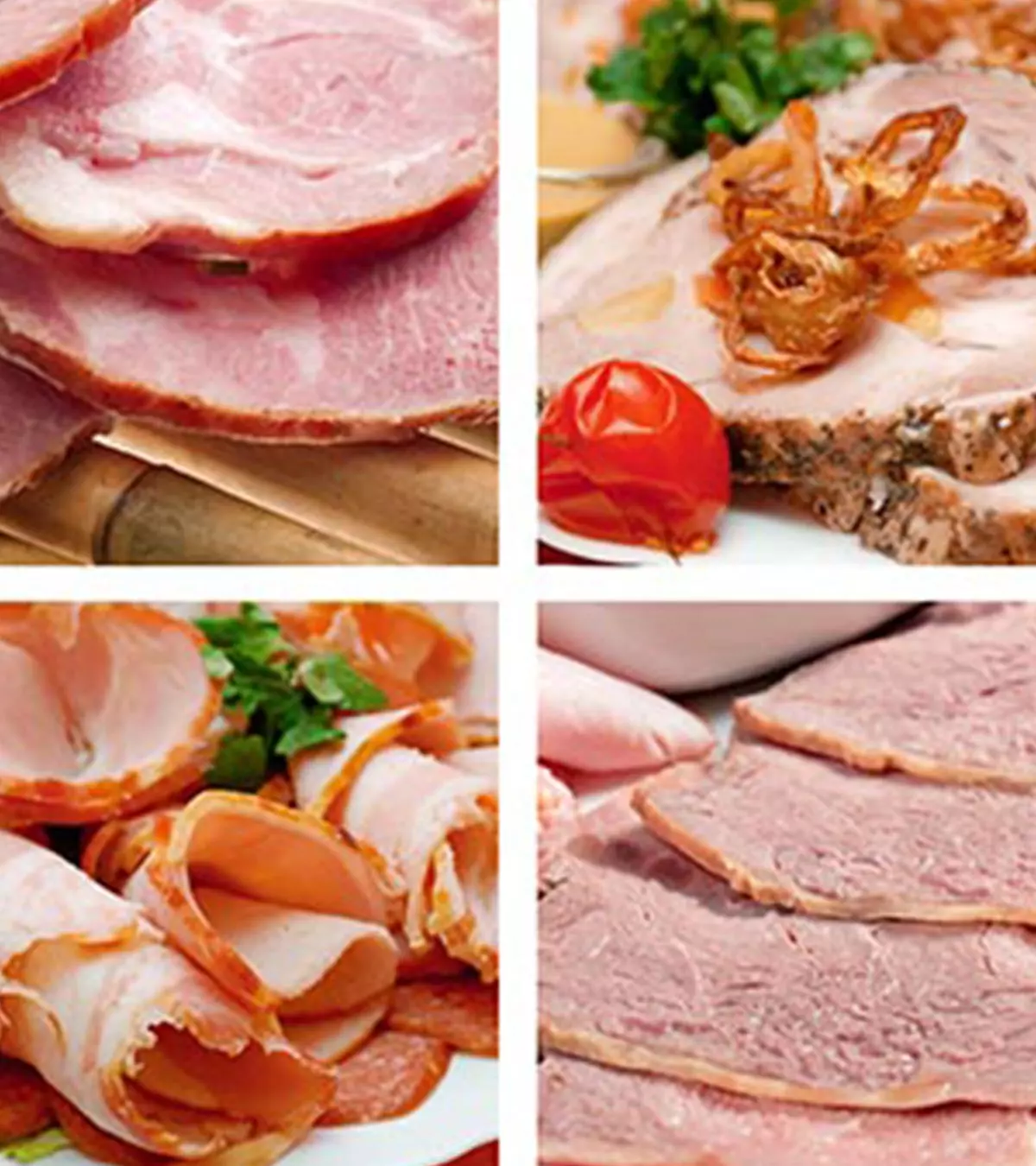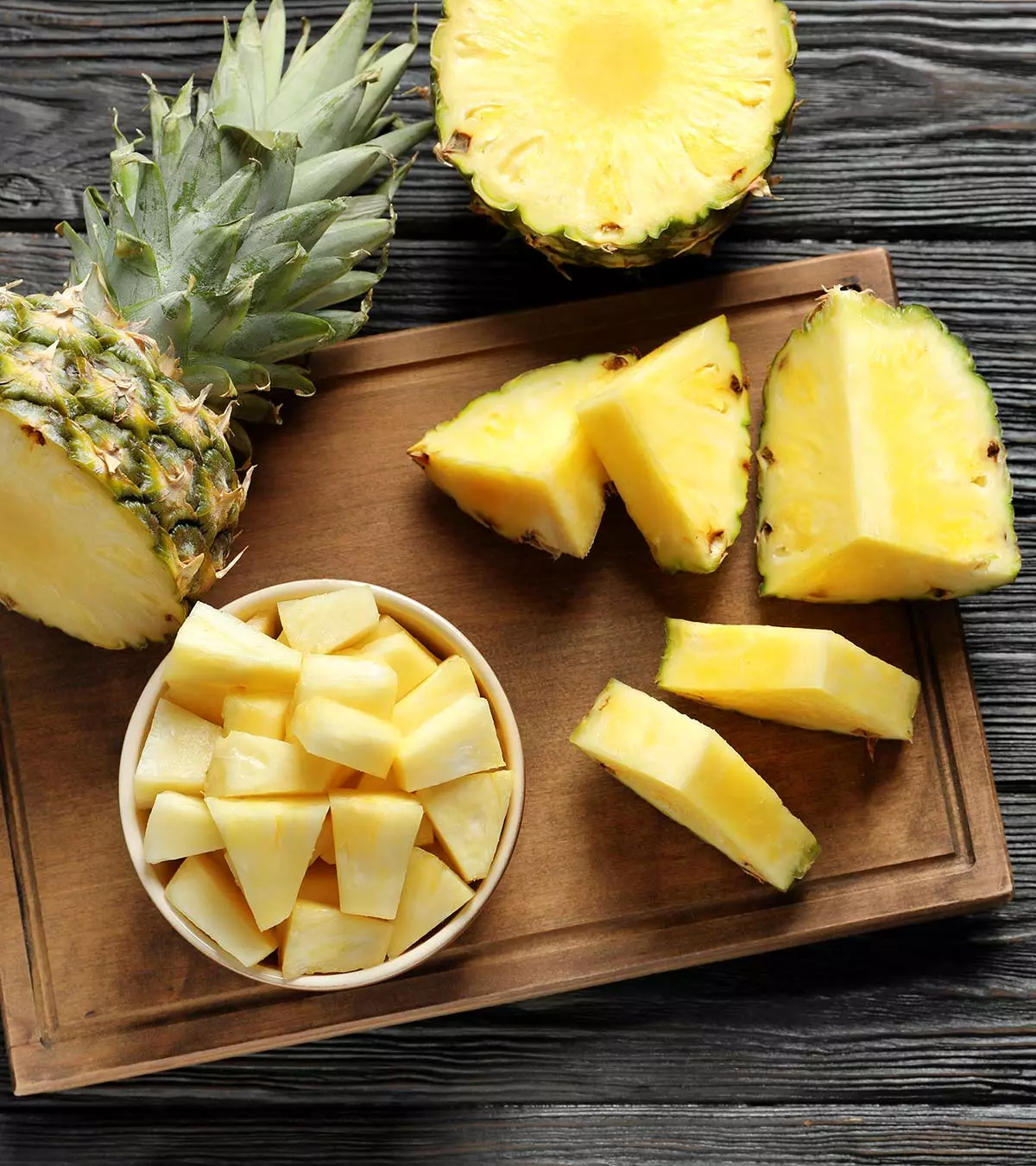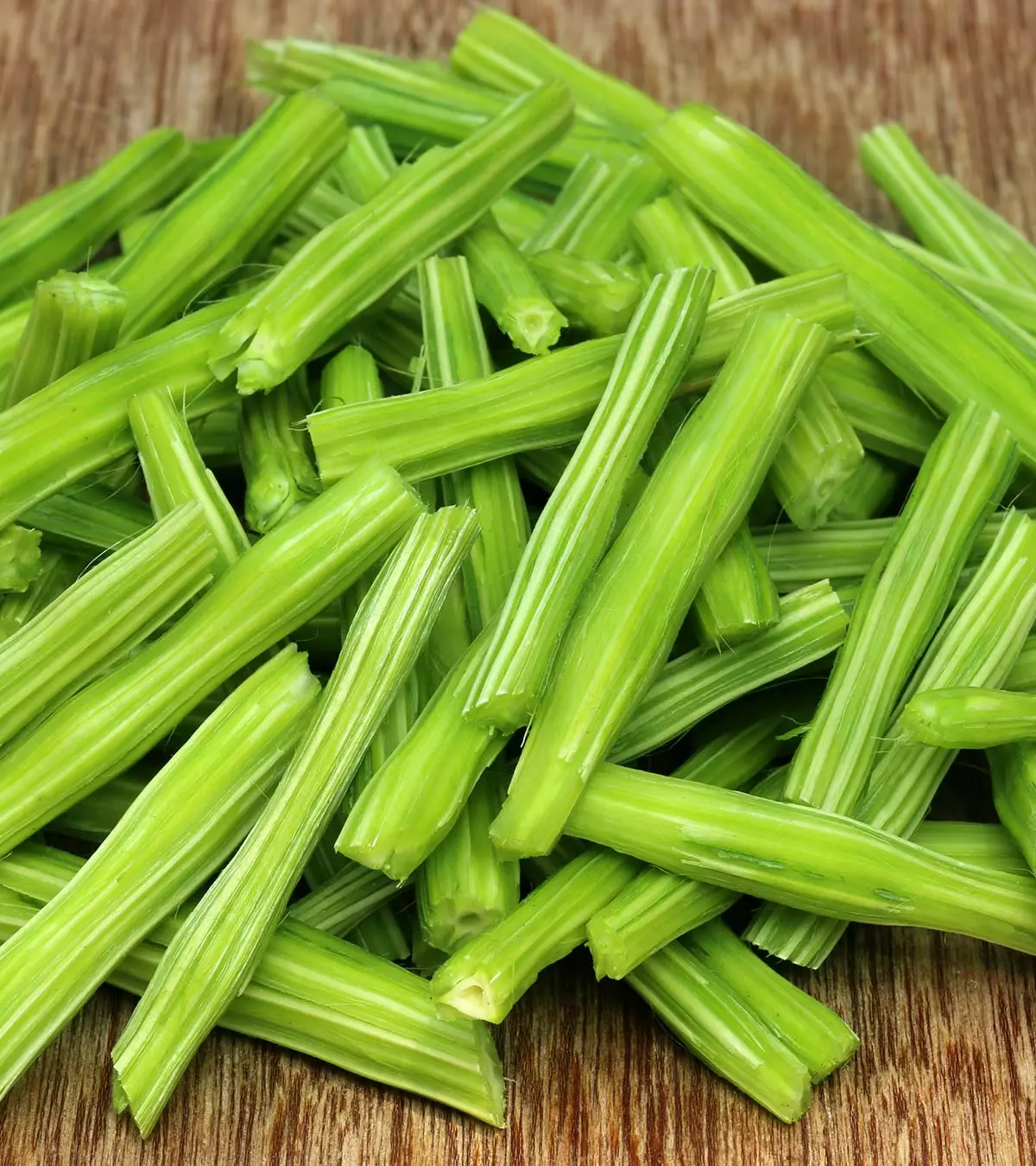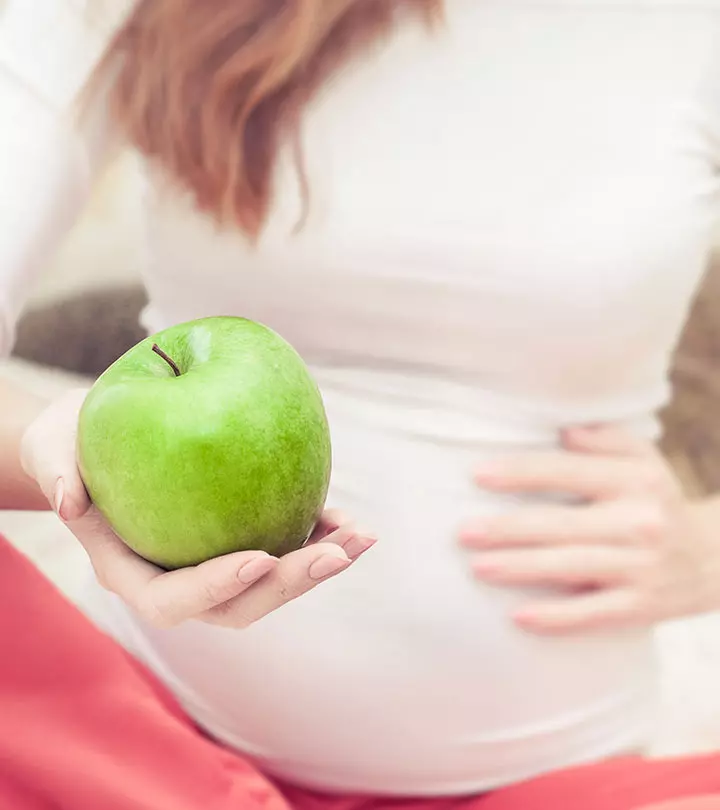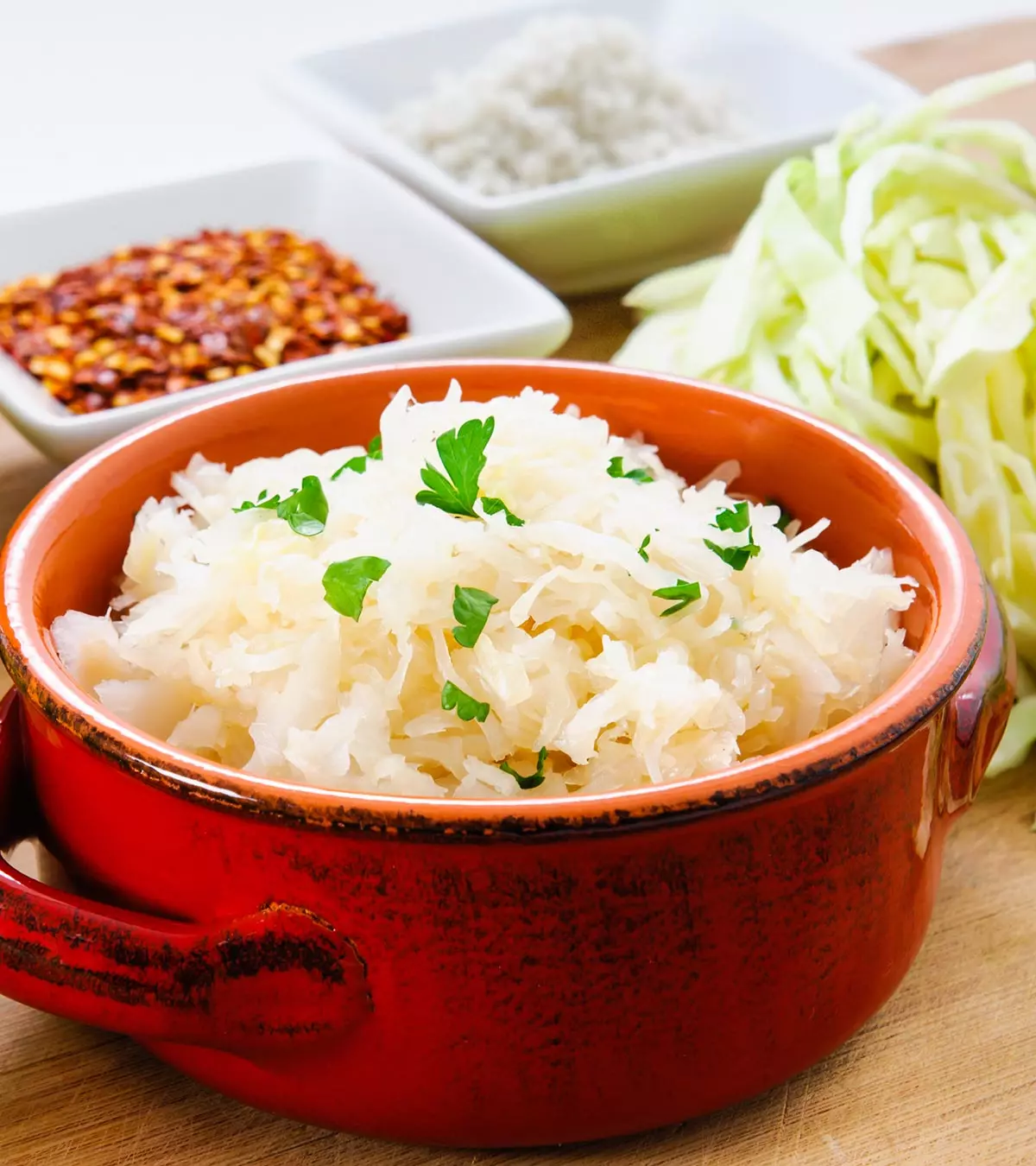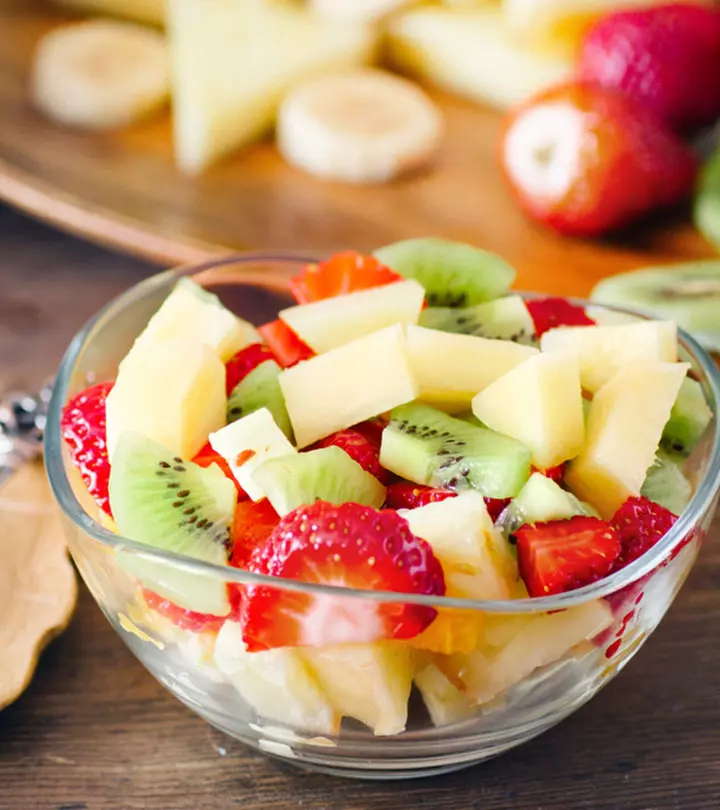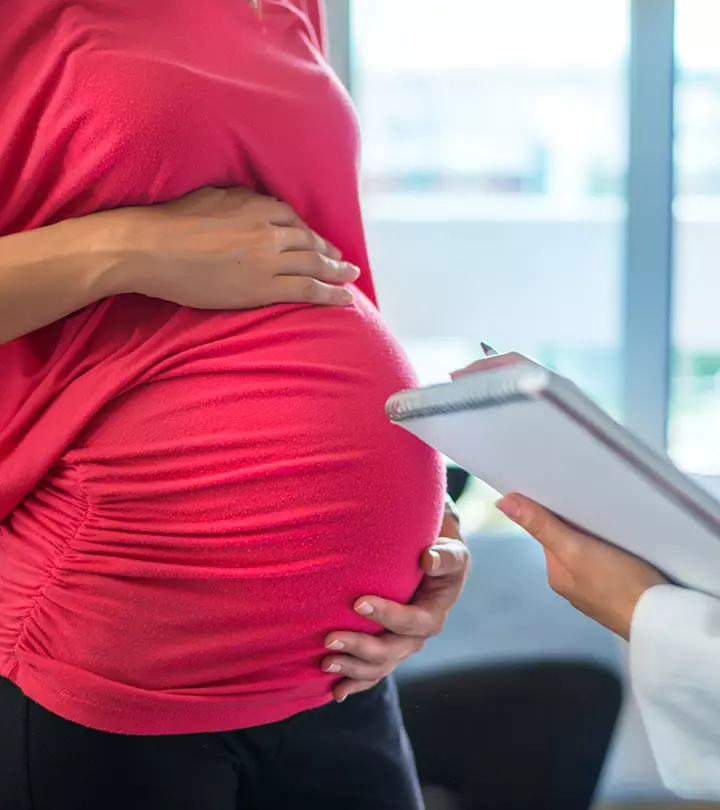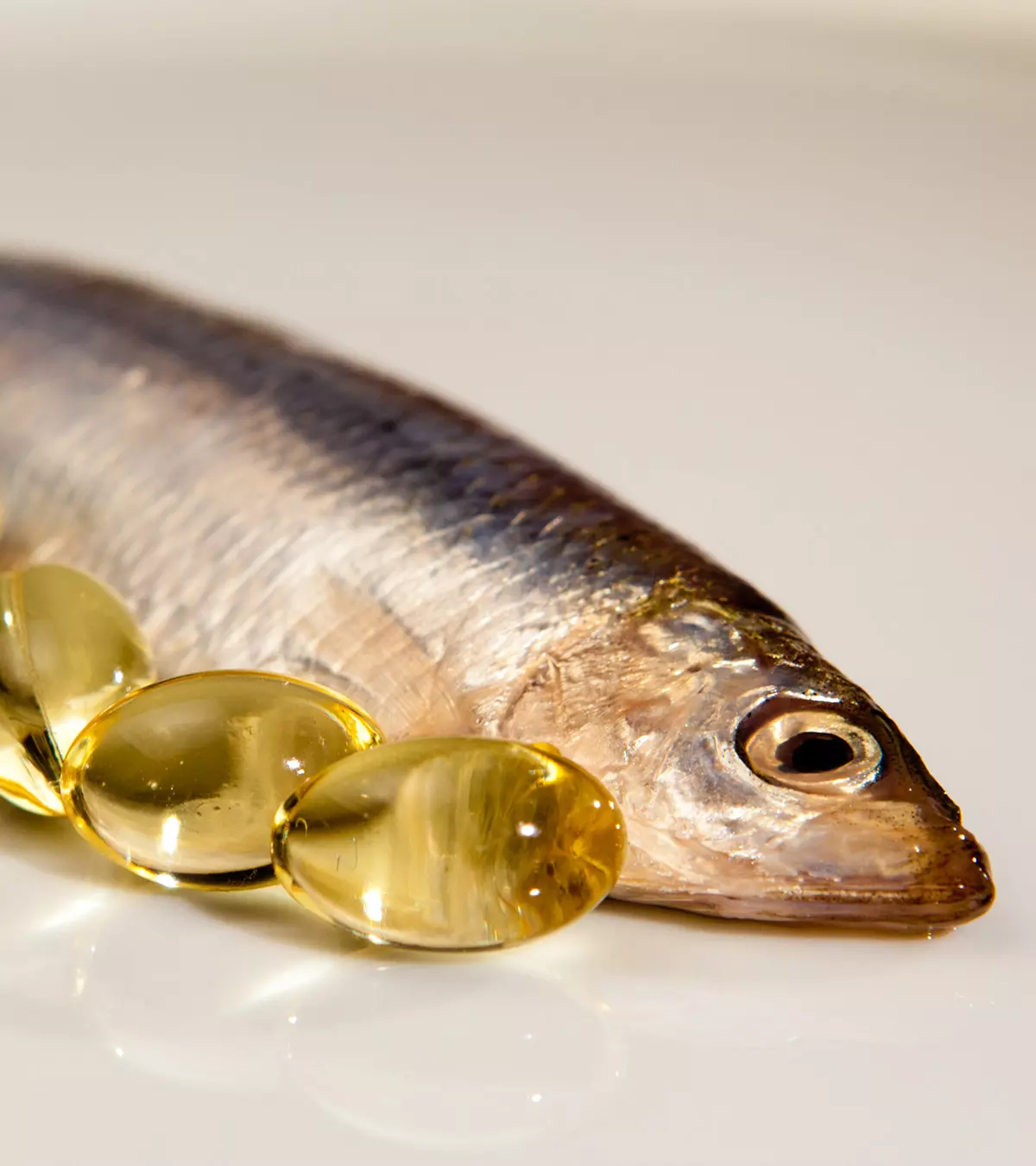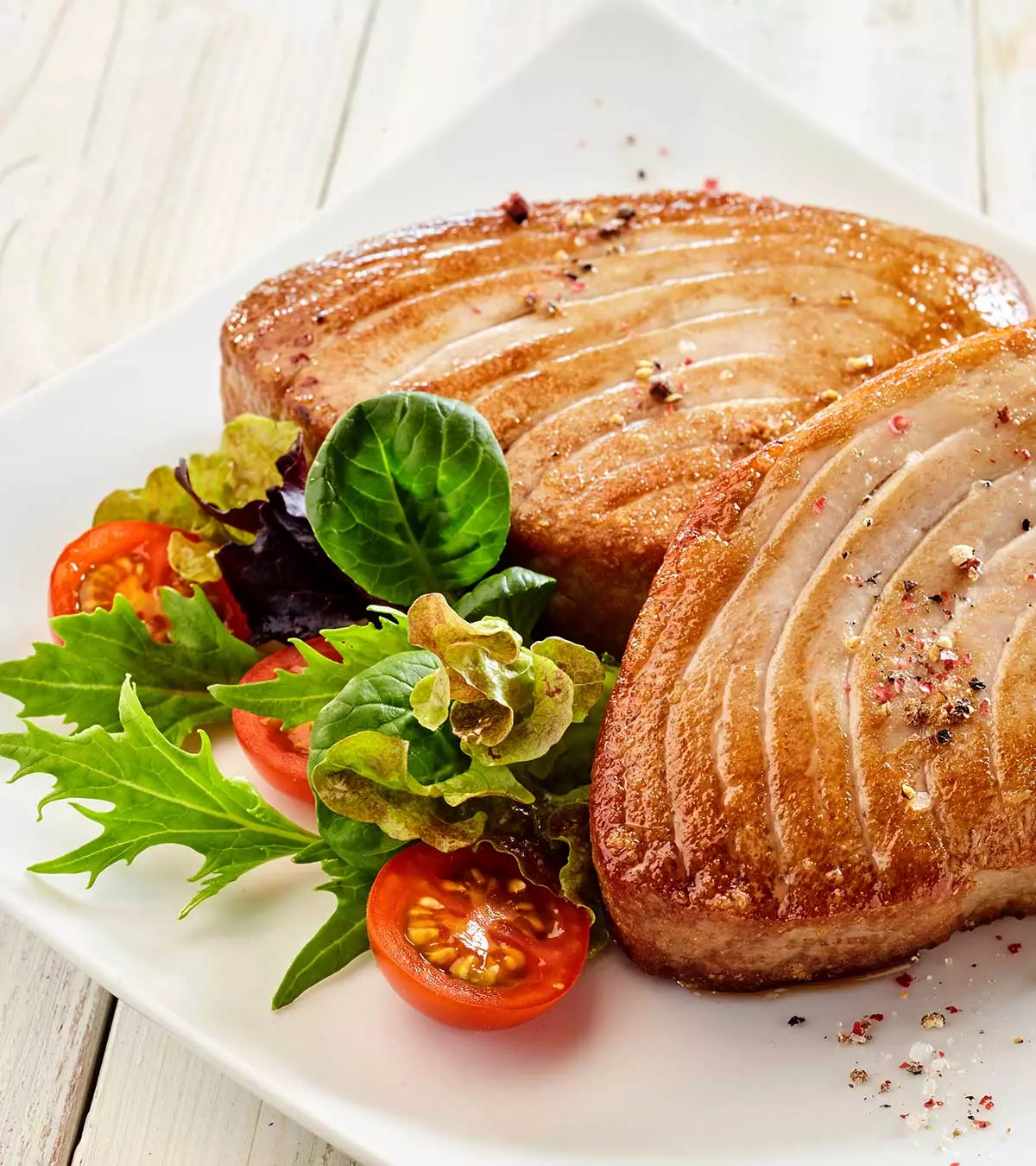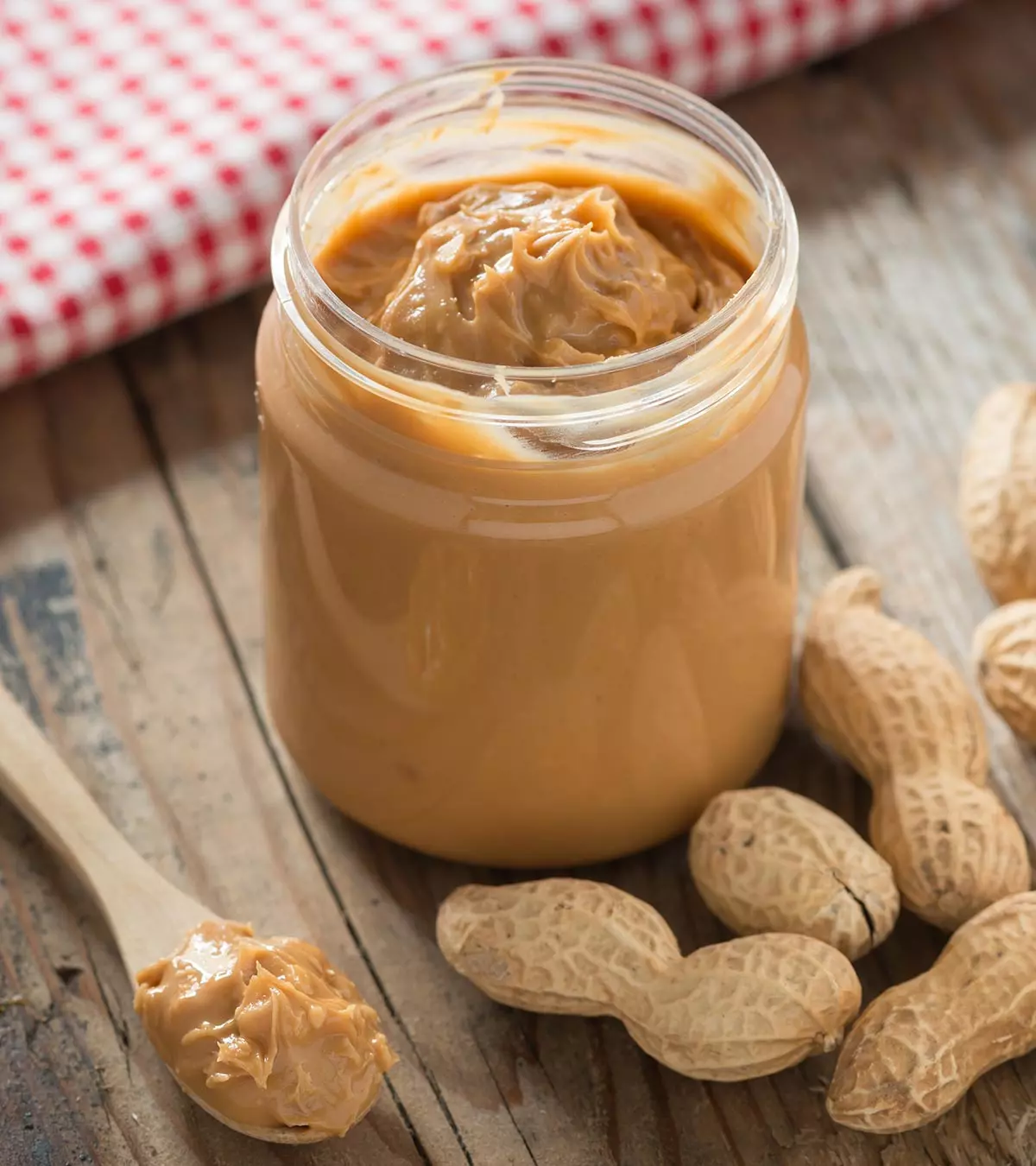
Image: ShutterStock
You may eat peanuts in pregnancy to get various nutrients. Only women who are allergic to peanuts or groundnuts are advised to avoid them. Although some believe that eating peanuts during pregnancy can cause children to have peanut allergies, there is no scientific evidence to back this claim. Hence, you may include this affordable source of nutrition in your pregnancy diet.
Read on to learn the benefits and risks of eating peanuts during pregnancy and some safe ways to include them in your diet.
Key Pointers
- Peanut is a nutritious legume that can offer healthy fats to support proper fetal brain development. It also contains vitamins, minerals, and antioxidants that could benefit the mother’s health and aid in the baby’s proper growth and development.
- Pregnant women can consume peanuts and peanut butter in moderation as a part of a healthy diet to avert any side effects.
Is It Safe To Eat Peanuts and Peanut Butter When Pregnant?
You may eat peanuts and peanut butter if you are not allergic to them. Peanuts are nutrient-rich foods, packed with polyunsaturated fatty acidsiEssential fatty acids required for the proper functioning of the cells and brain and the prevention of diseases , antioxidants, protein, calories, and folate, and can make your maternal diet healthy (1). It is safe to consume peanuts and peanut butter (made of nuts and a dash of salt) in moderation.
What Are The Benefits Of Peanuts And Peanut Butter During Pregnancy?
Here is how the nutrients present in peanuts might help support prenatal health. You may include peanut butter in your diet or simply roast a few peanuts and consume them.
1. Iron
All nuts, including peanuts, are rich in iron. Whole peanuts or peanut butter will help you prevent anemia (2).
2. Monounsaturated fats
Peanuts are rich in monounsaturated fatsiA class of beneficial fatty acids that help prevent conditions such as heart disorders and high blood pressure , especially oleic acid (3), which is helpful for the heart.
You can have a handful of peanuts every day to prevent heart diseases (4).
3. Phytosterols
Peanuts are a good source of phytosterols, also referred to as beta-sitosterol, which inhibit the development of tumors (5).
4. Niacin
Vitamin B3 (niacin) in peanuts boosts memory power and brain functioning (6). Also, the flavonoidiSecondary metabolite found in fruits and vegetables, containing antioxidants and anti-inflammatory properties resveratroliAn antioxidant containing anti-inflammatory and anti-aging properties present in peanuts improves the flow of blood to the brain (7).
According to Dr. Zeeshan Afzal, specialty registrar from Cambridge, UK, “Nuts are high in folate, a B vitamin which is important for brain development and can help reduce the risk of neural tube defects. They are also high in healthy fats, such as omega-3 fatty acids.”
5. Calories
If you are underweight during pregnancy, then peanuts can help gain weight. They are packed with calories that help you achieve a healthy weight (8).
6. Fiber
The fiber content in groundnuts can help ease constipation (9).
7. Tryptophan
Peanuts contain the essential amino acid called tryptophan, which produces serotonin. This is one of the essential elements in regulating mood and helps combat depression (10). A report released by the Centers for Disease Control and Prevention (CDC) revealed that the prevalence of postpartum depressive symptoms was 13.2%, in the US during the year 2018.
8. Protein
Peanuts contain protein that helps in proper growth and development of the fetus, supporting adequate protein intake during pregnancy
(11).
9. Manganese
Manganese aids in the growth of fetal tissue and bone. It is also helpful in preventing premature contraction of the uterus (12).
10. Vitamin E
The nuts contain vitamin E, which works to keep your blood pressure under control (13). If you are looking for vitamin E-rich alternatives to peanuts, try consuming almonds during pregnancy.
Other benefits
11. Manage gestational diabetes
A healthy dose of peanuts, including peanut butter, can form part of a balanced gestational diabetes diet (14).
12. Believed to reduce the risk of peanut allergy
Consuming peanuts during pregnancy may work as an allergy prevention technique by reducing the risk of peanut allergy in the baby (15).
Nutritional Value Of Peanuts
The nutrition present in 100 grams of peanuts is as follows (16):
| Nutrient | Amount |
|---|---|
| Calories | 567kcal |
| Water | 6.50g |
| Carbohydrates | 16.13g |
| Protein | 25.80g |
| Fiber | 8.5g |
| Fat | 49.24g |
| Sugars | 3.97g |
| Vitamins | |
| Folic acid (Vitamin B9) | 240mcg |
| Pyridoxine (Vitamin B6) | 0.348mg |
| Niacin (Vitamin B3) | 12.87mg |
| Riboflavin (Vitamin B2) | 0.3mg |
| Thiamin (Vitamin B1) | 0.640mg |
| Vitamin E | 8.33mg |
| Electrolytes | |
| Potassium | 332mg |
| Sodium | 1mg |
| Minerals | |
| Calcium | 62mg |
| Iron | 2.09mg |
| Magnesium | 184mg |
| Zinc | 3.34mg |
| Phosphorus | 336mg |
| Lipids | |
| Saturated fatty acids | 7.32g |
| Monounsaturated fatty acids | 21.41g |
| Polyunsaturated fatty acids | 16.5g |
g=grams; mg=milligrams; mcg=micrograms
In spite of its benefits, when taken in excess, groundnuts can be bad for your health. Read on to learn about the side-effects of peanuts.
Possible Side Effects Of Eating Peanuts And Peanut Butter During Pregnancy
Peanuts, when taken in excess, can have adverse effects on your health.
1. Risk of food poisoning and allergy
Munching on old, stale or long-stored peanuts can lead to food poisoning as they are highly vulnerable to fungal contamination.
Dr. Afzal says, “Symptoms of a peanut allergy can range from mild to severe and can include itchy or swollen throat, hives or rash, nausea or vomiting, shortness of breath, and anaphylaxis (a severe and potentially life-threatening reaction). Therefore, if you have a known peanut allergy, it is important to avoid peanuts and peanut products during pregnancy.”
2. Increase blood pressure
Excessive consumption of salted peanuts will increase blood pressure. However, eating unsalted nuts in moderation can lower blood pressure (17).
3. May cause liver cancer
Peanuts are known to be susceptible to salmonella contamination. Over-consumption of the contaminated peanuts might increase the risk of liver cancer as the mold produces Aflatoxin, a carcinogen (18).
4. Contain pesticides
Peanuts have high moisture content that puts them at a risk of mold growth in them (19). This makes the use of pesticides necessary on them. Therefore, over-consumption can lead to side-effects such as dizziness, headache, nausea, diarrhea, fatigue, nervousness, blurred vision, sweating and more (20).
5. Contain saturated fats
Excessive consumption of peanuts will lead to high levels of saturated fats in the body. It can, therefore, cause problems of heart, digestion, blood pressure and other complications.
6. Risk of weight gain
Though peanuts help in gaining healthy weight, overeating them can lead to unnecessary weight gain, which may affect weight management during pregnancy.
In some cases, eating even a moderate or small quantity of peanuts can be bad for you. Find out about it next.
When Should You Avoid Peanuts During Pregnancy?
Avoid peanuts during pregnancy if:
- You are overweight
- You have digestion issues, such as vomiting or loose stools
- You are prone to varicose veinsiSwollen and twisted veins, mainly in feet and legs, that occur due to the pooling of blood
- You have kidney stones
But the above risks should not be a barrier to including peanuts in your diet.
Keep reading to know how you can include peanuts in your diet and benefit from the nutrition they offer.
What Are The Safe Ways To Eat Peanuts During Pregnancy?
If you do not have a history of nut allergies, you could include peanuts in different dishes, in more ways than one.
- Dry or oil roasted peanuts make a great snack. Roast peanuts to improve their antioxidant content.
- If you’re worried about allergen exposure, oil-fried peanuts are usually free of allergens.
- Boiled peanuts are filling and beat hunger pangs. You can add some salt and boil them in water along with their skin.
- Salted peanuts are good to take in limited quantities, else they could cause water retention.
- Toss some peanuts in chutneys, dips or salads, to give the food a good flavor.
- Peanut butter can be used for sandwiches and to make dips.
 Point to consider
Point to consider- Add oatmeal or any cereal as a topping.
- Blend peanuts or peanut butter with fruits like bananas and milk to make a healthy, protein-rich smoothie.
Next, we answer a few commonly asked questions about including peanuts in your pregnancy diet.
Frequently Asked Questions
1. Can you eat raw peanuts during pregnancy?
Raw peanuts are not safe as they can carry mold or fungi that can cause infectious diseases.
2. Which foods contain peanuts?
Peanuts may be present in a variety of foods including chocolate products, candies, cereals, granola bars, pesto, muffins, bread, desserts, and baked foods. If you have allergies to peanuts, you should be avoiding these foods. Read labels for clarity.
3. What is the best time to have peanuts during pregnancy?
You can have peanuts during all trimesters of pregnancy unless you are allergic to them.
4. Does a craving for peanut butter in pregnancy say something about the baby’s gender?
According to old wives’ tales, craving for peanut butter during pregnancy indicates that you are carrying a boy. However, it is just one of the many ways to guess the sex of the unborn child, although not a reliable one.
5. Does eating peanuts during pregnancy make the baby intelligent?
Peanuts are affordable, tasty, and nutritious. There is no reason for you to banish these healthy nuts from your pregnancy diet. The side effects mentioned here are usually a result of over-consumption, which causes an imbalance in the diet. So, plan your meals and make peanuts a part of them to stay healthy and happy throughout your pregnancy.
How did you include peanuts in your pregnancy diet? Share your ideas and experiences in the comments section below
Infographic: What Are The Safe Ways To Eat Peanuts During Pregnancy?
Eating peanuts during pregnancy is generally considered safe, but it is important to avoid consuming them in large quantities or in a form that increases the risk of choking or allergy. To reduce its risk, peanuts can be ground into a paste or butter. It is also recommended that you consult a healthcare provider if there’s a family history of allergies. The infographic below includes a list of safe ways to include peanuts in your pregnancy diet.

Illustration: Momjunction Design Team
Illustration: Healthy Reasons Why You Should Eat Peanuts In Pregnancy

Image: Dall·E/MomJunction Design Team
References
- Peanut Nutrition 101.
https://nationalpeanutboard.org/wellness/ - Vitamins, supplements and nutrition in pregnancy.
https://www.nhs.uk/pregnancy/keeping-well/vitamins-supplements-and-nutrition/ - New Peanuts Profile More Like Olive Oil.
https://www.nutritionletter.tufts.edu/general-nutrition/new-peanuts-profile-more-like-olive-oil/ - Peanuts linked to same heart longevity benefits as more pricey nuts.
https://www.health.harvard.edu/blog/peanuts-linked-heart-longevity-benefits-pricey-nuts-201503057777 - Chih-Ching Yeh et al.; (2006); Peanut consumption and reduced risk of colorectal cancer in women: A prospective study in Taiwan.
https://www.ncbi.nlm.nih.gov/pmc/articles/PMC4066030/ - Belen F. Cantiller; Health Care Observations: That You Should Know!
https://books.google.co.in/books?id=ms0OBAAAQBAJ&pg=PA14&dq=peanuts+boost+memory&hl=en&sa=X&ved=0ahUKEwib_6H-zO7bAhXFlZQKHV-pDnEQ6AEILTAB#v=onepage&q=peanuts%20boost%20memory&f=false - Isabella Parilli-Moser et al.; (2021); Consumption of peanut products improves memory and stress response in healthy adults from the ARISTOTLE study: A 6-month randomized controlled trial.
https://www.clinicalnutritionjournal.com/action/showPdf?pii=S0261-5614%2821%2900437-4 - Healthy Eating During Pregnancy.
https://medlineplus.gov/ency/patientinstructions/000617.htm#:~:text=If%20you%20Need%20to%20Gain%20Weight%20During%20Pregnancy&text=Keep%20quick%2C%20easy%20snacks%20on,apples%2C%20bananas%2C%20or%20celery. - Constipation Causes and Tips.
https://healthonline.washington.edu/sites/default/files/record_pdfs/CAB-11-Constipation.pdf - Munching Peanuts can Boost Your Fertility & Brain Power. 20 Other Health Facts.
http://tagteam.harvard.edu/hub_feeds/2406/feed_items/1602743/content - Virginia Messina; Vegan for Her: The Woman’s Guide to Being Healthy and Fit on a Plant-Based Diet.
https://books.google.co.in/books?id=SIRKDgAAQBAJ&pg=PT66&dq=peanuts+during+pregnancy+protein&hl=en&sa=X&ved=0ahUKEwiEjsq_z_DbAhUOh7wKHTj0A70Q6AEIKzAB#v=onepage&q=peanuts%20during%20pregnancy%20protein&f=false - How Food Works: The Facts Visually Explained; What to eat during pregnancy?
https://books.google.co.in/books?id=YsJSDwAAQBAJ&pg=PA219&dq=peanuts+during+pregnancy+manganese+bone&hl=en&sa=X&ved=0ahUKEwjcjJL0z_DbAhWGU7wKHdgxDSAQ6AEILDAB#v=onepage&q=peanuts%20during%20pregnancy%20manganese%20bone&f=false - Robert A. Greene; Perfect Hormone Balance for Pregnancy.
https://books.google.co.in/books?id=ENX9FGi8VBAC&pg=PA85&dq=peanuts+during+pregnancy+prevents+preeclampsia&hl=en&sa=X&ved=0ahUKEwi54Ne91vDbAhVBl5QKHbWcB1QQ6AEIPjAE#v=onepage&q=peanuts%20during%20pregnancy%20prevents%20preeclampsia&f=false - Healthy eating for Gestational Diabetes Mellitus.
https://www.health.qld.gov.au/__data/assets/pdf_file/0025/621619/sdcn-healthyeating.pdf - Iván López-Expósito et al.; (2009); Maternal peanut exposure during pregnancy and lactation reduces peanut allergy risk in offspring.
https://pubmed.ncbi.nlm.nih.gov/19895992/ - Your Good Health: How to Stay Well and what to Do when You’re Not.
https://books.google.co.in/books?id=tLKTKBjWlpQC&pg=PA405&dq=salted+peanuts+blood+pressure&hl=en&sa=X&ved=0ahUKEwio1efA2vXbAhVHFZQKHSQgAEcQ6AEIJjAA#v=onepage&q=salted%20peanuts%20blood%20pressure&f=false - Aflatoxins.
https://www.cancer.gov/about-cancer/causes-prevention/risk/substances/aflatoxins - Chenling Qu et al.; (2020); Effect of Drying Temperatures on the Peanut Quality during Hot Air Drying.
https://pubmed.ncbi.nlm.nih.gov/32281561/ - Exercise Physiology.
https://books.google.co.in/books?id=6sjXBgAAQBAJ&pg=PA53&dq=omega+6+fatty+acids+peanut&hl=en&sa=X&ved=0ahUKEwi809Xf0_XbAhVs5IMKHdkWDKQQ6AEILzAC#v=onepage&q=omega%206%20fatty%20acids%20peanut&f=false - How To Strengthen Your Brain.
https://books.google.co.in/books?id=iYwRGcKdp-MC&pg=PA25&dq=omega+6+fatty+acids+baby+intelligence&hl=en&sa=X&ved=0ahUKEwiZsc3F0_XbAhXEkJQKHQZ1CvIQ6AEILDAB#v=onepage&q=omega%206%20fatty%20acids%20baby%20intelligence&f=false - A. J. Hill et al.; (2016); Nutritional and clinical associations of food cravings in pregnancy.
https://www.ncbi.nlm.nih.gov/pmc/articles/PMC5054961/ - Leslie V. Farland et al.; (2015); Early Pregnancy Cravings Dietary Intake and Development of Abnormal Glucose Tolerance.
https://www.ncbi.nlm.nih.gov/pmc/articles/PMC4663162/ - Pradeep Kumar et al.; (2017); Aflatoxins: A Global Concern for Food Safety Human Health and Their Management.
https://www.ncbi.nlm.nih.gov/pmc/articles/PMC5240007/ - Laura E. Smith et al.; (2017); Aflatoxin Exposure During Pregnancy Maternal Anemia and Adverse Birth Outcomes.
https://www.ncbi.nlm.nih.gov/pmc/articles/PMC5392618/
Community Experiences
Join the conversation and become a part of our nurturing community! Share your stories, experiences, and insights to connect with fellow parents.
Read full bio of Dr. Shikha Sharma
Read full bio of Swati Patwal
Read full bio of Rebecca Malachi
Read full bio of Aneesha Amonz





 Did you know?
Did you know? Caution
Caution